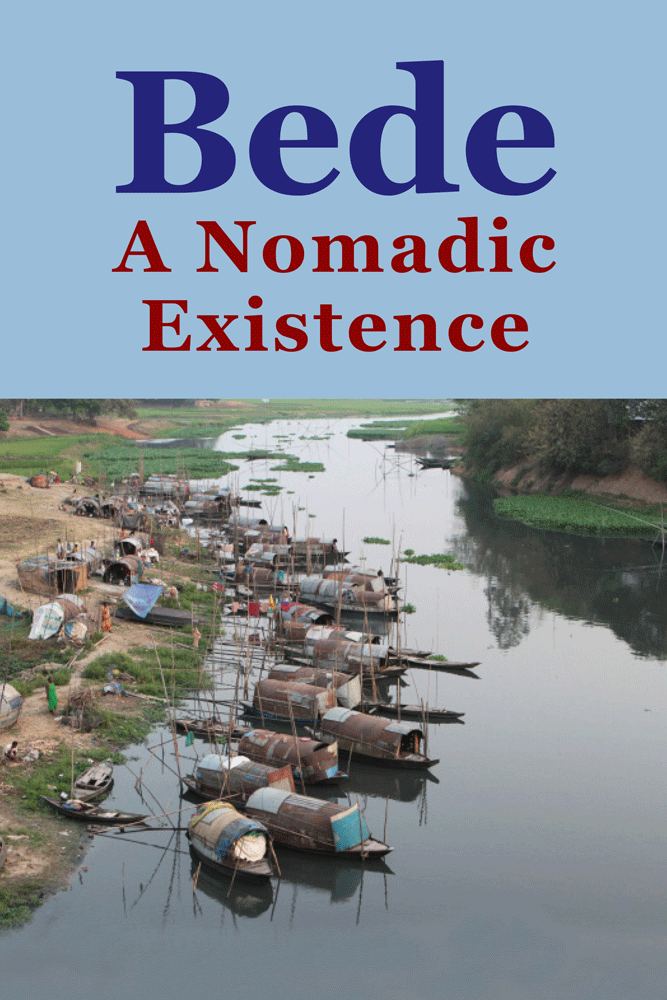By Dr. Hossain Zillur Rahman and Sabrina Miti Gain
Published by Society for Environment and Human Development (SEHD)
Published 2019, English, PBK, 64 page
Tk.100/US$5
 The Bede is a Muslim nomadic community that travels around the country to earn a living. Generally every year (during Eid-ul-Adha and/or elections), they gather in 75 locations of the country to meet their families and community members for one to two months. A floating people, the majority of the Bede is completely landless. Before modernisation, the Bede was highly regarded in Bangladesh society because of the service they provided to millions of people. As healthcare and medicines became more accessible and relatively cheaper, the traditional occupations of the Bede started to decline.
The Bede is a Muslim nomadic community that travels around the country to earn a living. Generally every year (during Eid-ul-Adha and/or elections), they gather in 75 locations of the country to meet their families and community members for one to two months. A floating people, the majority of the Bede is completely landless. Before modernisation, the Bede was highly regarded in Bangladesh society because of the service they provided to millions of people. As healthcare and medicines became more accessible and relatively cheaper, the traditional occupations of the Bede started to decline.
The Bede is now poverty-stricken with extremely low literacy rate. Most of them have abandoned their boats. They roam around the country and live temporarily in tents they set on private or khas (public) land. It is a big challenge for the roving Bede to settle permanently on land, a common desire.
Power and Participation Research Centre (PPRC) and SEHD carried out a study in 14 Bede settlements with a population of 55,408 in eight districts around the country. SEHD carried an investigation on their condition and struggle. The monograph presents findings on demographic and socio-economic conditions of the community, which is a valuable addition to the academic and public discourse on social exclusion of the Bede in Bangladesh.
